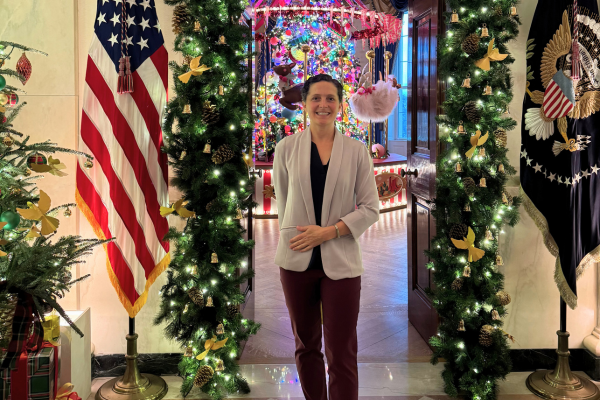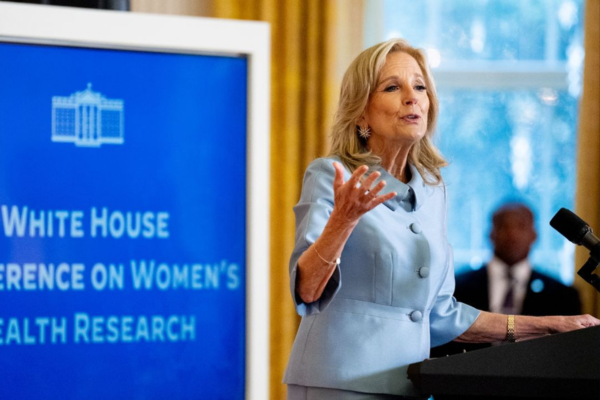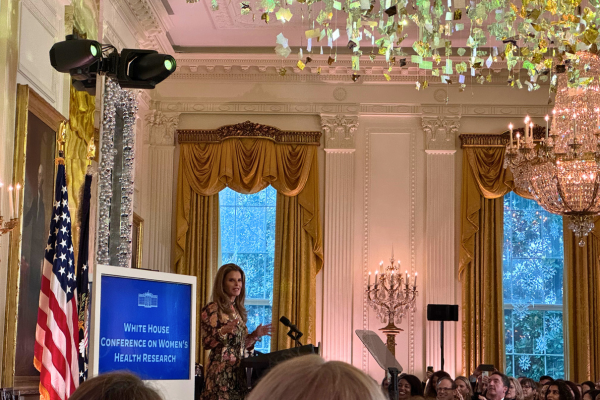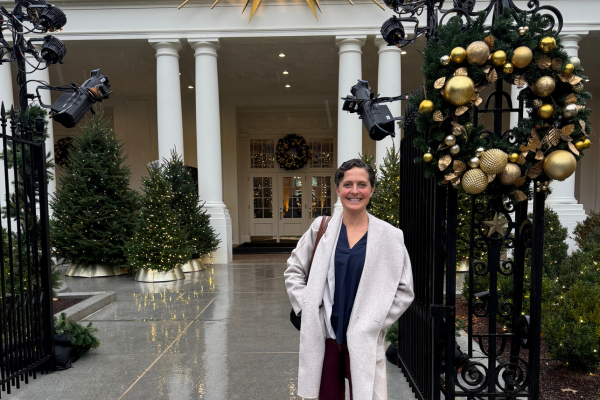
On December 11, a historic event took place at the White House, bringing together a diverse group of researchers, policymakers, and advocates to discuss the future of women’s health research. The White House Conference on Women’s Health Research, led by First Lady Jill Biden, aimed to push forward a groundbreaking initiative for improving health outcomes for women, with a special emphasis on addressing health conditions that disproportionately or differently affect women. Among the distinguished attendees was Dr. Jocelyn Ross Wittstein, an associate professor of orthopaedic surgery specializing in shoulder, elbow, and knee injuries in pediatric and adult populations.

This conference, the first of its kind, was part of the White House's ongoing effort launched in 2024 to increase funding for women's health research through organizations such as the National Institutes of Health (NIH) and the Advanced Research Projects Agency for Health (ARPA-H). The initiative aims to foster multidisciplinary collaboration to enhance research on various women’s health issues, including obstetrics and gynecology, cardiology, musculoskeletal health, mental health, and neurology.

A New Era of Research Collaboration
The event united a diverse group of thought leaders, clinicians, business executives, academic researchers, and representatives from federal agencies, all united in their commitment to advancing innovation in women’s health. Among the 100 attendees was Dr. Wittstein, whose research bridges the fields of musculoskeletal and women’s health. As a guest, she represented the intersection of these disciplines and contributed to the interdisciplinary dialogue that defined the conference.
Dr. Wittstein expressed her gratitude for the opportunity: "I was honored to be selected to attend this event and recognized for my work at the intersection of women’s health and musculoskeletal and orthopaedic health. The goal of this meeting was to inspire sustained efforts in women’s health research and promote a collaborative, multidisciplinary approach to tackling these challenges."
The event also featured remarks from President Joe Biden and First Lady Jill Biden, who underscored their administration's commitment to long-term funding for women’s health research. They emphasized the importance of addressing gaps in the field and improving health outcomes for women, with a particular focus on supporting interdisciplinary initiatives. Dr. Biden shared, “My work doesn’t stop in January when Joe and I leave this house. I will keep building alliances like the ones that brought us here today, and I will keep pushing for funding for innovative research,” she said.

Reflecting on the day’s success, Dr. Wittstein shared, "It was an amazing day with incredible connections. Presentations, including those by Joe and Jill Biden, were outstanding. The event was a model of interdisciplinary collaboration. Much work has already been done to increase grant funding, especially for research related to menopause.
Wittstein continued, "I met many remarkable people — including the director of M Factor, the editor of Women’s Health, the head of the American Heart Association, and leaders in the International Menopause Society, all before breakfast. I only wish I had three more hours to network with this incredible mix of experts."
This gathering was pivotal in shaping a new era of collaborative research that promises to drive meaningful advancements in women’s health.
Musculoskeletal Health and Women's Health: A Crucial Intersection
For Dr. Wittstein, the conference underscored the pressing need for research focused on musculoskeletal conditions that disproportionately affect women. Some of the key areas of concern include:
- ACL Injuries in Youth and Active Women: Women and girls are up to 8 times more likely to tear their anterior cruciate ligament (ACL) than men and boys. Dr. Wittstein is part of a collaborative study that investigates the role of sex hormones and fatigue in ACL injuries. This research aims to determine how cyclical hormonal changes, particularly estrogen levels, might increase ACL laxity and muscle fatigue in women.
- Osteoporosis and Fragility Fractures: As women age, they become more susceptible to osteoporosis and fragility fractures, often related to decreased estrogen levels during menopause.
- Dr. Wittstein studies how menopausal hormone therapy (MHT) can reduce these risks and improve bone and joint health. Her research aims to explore whether MHT might also benefit other musculoskeletal conditions, such as arthritis and frozen shoulder, both of which are more prevalent in postmenopausal women.
- Frozen Shoulder and Menopausal Arthritis: Dr. Wittstein’s research delves into the connection between menopause and conditions like frozen shoulder and other arthralgias (joint pain). Estrogen receptors are distributed throughout the musculoskeletal system, including the synovium and bone, influencing the development of hand and knee arthritis. Her work seeks to understand better how hormonal changes impact these conditions, which could ultimately lead to improved treatment strategies.
In addition to her ongoing clinical and basic science research, Dr. Wittstein has initiated the musculoskeletal symptoms of menopause registry in collaboration with Duke Women's Health. The registry tracks the relationship between vasomotor symptoms (e.g., hot flashes) and musculoskeletal symptoms (e.g., joint pain). Dr. Wittstein and her collaborators hope to expand the scope of neurologic and cognitive symptoms eventually. This registry is an essential step toward improving our understanding of the effects of menopause on women’s overall health and well-being.
A Path Forward for Women’s Health Research
The White House Conference provided a platform for sharing ongoing research efforts and a catalyst for future collaborations. During the event, attendees had the opportunity to network and establish connections that will likely lead to interdisciplinary partnerships to address the multifaceted needs of women’s health.
For Dr. Wittstein, this experience was particularly valuable as it highlighted the growing recognition of the need for integrative approaches to women’s health research. “The collaborative nature of this event is essential for advancing our understanding of women’s health conditions,” Dr. Wittstein noted. “By bringing together experts from diverse disciplines—musculoskeletal health, cardiology, neuroscience, mental health, and beyond—we can ensure that women’s health issues are not viewed in isolation but as interconnected, complex challenges that require holistic solutions.”
Looking Ahead
Dr. Wittstein’s current research focuses on several promising areas, including:
- The Musculoskeletal Syndrome of Menopause: A recent publication in Climacteric explores how menopause influences musculoskeletal health. It focuses on the effects of estrogen depletion and the benefits of menopausal hormone therapy for joint health.
- Cross-Sectional Studies on Menopause: Dr. Wittstein and her colleagues plan a large-scale, anonymous study involving approximately 1,000 participants. This study will assess the relationship between vasomotor symptoms and musculoskeletal issues and explore how hormone therapy might provide relief.
- Chondral Resiliency in Menopause: Dr. Wittstein, along with collaborators, has submitted an NIH grant proposal to study the effects of age, sex, and hormone therapy on chondral resiliency, which is crucial for understanding the long-term effects of menopause on joint health.
The White House Conference on Women’s Health Research was a critical milestone in advancing our understanding of women’s health, particularly in overlooked areas like musculoskeletal conditions. By fostering greater collaboration and securing vital funding, we can look forward to new and improved treatments that will enhance women's lives everywhere.